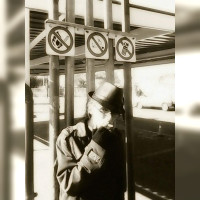“How the f*ck do you write so many books so fast?”
That was George R.R. Martin’s burning question for fellow author Stephen King during a recent interview in Albuquerque, NY. (Skip to 50:20 for the exchange.) King replied with his writing routine of six pages a day.
But writing routines can differ wildly between authors: Ernest Hemingway found it inspiring to write in the mornings, “as soon after first light as possible”, where Jack Kerouac wouldn’t put a word on paper until the afternoon.
Whatever your thing, writing regularly is critical to being a successful (and productive) author. Here are some pointers on developing your own routine.
What’s Your Thing?
Truman Capote kept his ashtray down to three cigarette butts when he wrote. Agatha Christie pondered plots in a bathtub while eating apples. Friedrich Schiller, on the other hand, kept a pile full of rotting apples in his desk because he found the smell inspiring.
Everyone’s got their thing, and as long as it’s helping your writing rather than getting in the way, you should be fine. If you find yourself blocked for an extended period of time, take some time to think about your writing vibe: What can help you get back into the swing of things?
It can be something as simple as a special pen, a specific playlist, getting out the old typewriter or reading through a book that gets your words flowing.
Anything that gets things going for you when you write, that’s your thing.
Make Time to Write
“I don’t have time to write.” That’s likely the #1 excuse that’s standing in the way of a potential bestseller. Is it yours?
Melanie Marquis, author of books like Modern Spellcasters Tarot, The Witch’s Bag of Tricks and Witchy Mama, says that she’d prefer to be writing while sipping a latte or sitting in the sun, but the reality is different. “I have children and a day job too, which means I end up writing while I’m cooking dinner, or in the few minutes before I need to switch the laundry over, or when several people are talking to me and asking questions all at once!”
Other times, she says her writing sessions might kick off at 3.a.m while the rest of the house is asleep. Melanie’s secret? “Stop making excuses or looking for reasons why you can’t.”
There’s always time to write somewhere. Jot some ideas down while you brush your teeth, record ten minutes of character dialogue or ideas when you’re stuck in traffic. I began many articles on late walks, but also on napkins, receipts and mirrors with lipstick in a hurry.
If you wait for the ideal vibe to start writing, you might never get started at all.
Set a Count
Set a regular word or page count. It doesn’t have to be a massive twenty-page quota, and you don’t have to write the lot in one sitting. Think of it this way: If you wrote one page every day for a year, you’d have a 365 page novel by the end of it!
The most important thing to remember is that no matter how small, the numbers do add up.
Don’t worry too much about the finer details while you’re writing. That’s what editing is for, and you can set out separate days for sitting down to edit. A piece always somehow looks fresh and new once it’s spent some time sitting in the dark.
Arthur Conan Doyle clocked in approximately 3,000 words per day, while Ernest Hemingway, Graham Greene, and Michael Robotham share a limit of 500. It’s about what works for you, as long as it becomes a regular routine.
Outline
“Because I write thrillers, it’s important for me to know where the story is going and how it will end before I begin writing it,” says award-winning author Jeffery Deaver. “I realize that some writers choose not to work from an outline, but for a mystery, it would be quite disappointing for an author to reach the end of the novel and realize he or she hadn’t placed the clues in just the right places to support multiple twists and turns at the end of the book.”
Jeffery says that he spends about nine months on the outline for a novel. “My outlines run hundreds of pages and are the most difficult part of the writing process, but once I work out all the details of the story, then writing the book itself goes fairly quickly,” he notes.
So that’s how he does it!
Writing on the Move
Writing would be much easier if ideas showed up every day at nine-thirty sharp and said, “Hey, writer dude, use us.” But they don’t. Ideas don’t stick to a schedule and tend to show up whenever they like, so be ready.
Keep a notebook and pen handy at all times, or download one of the thousands of voice recorders for your smartphone to make sure you never let a great idea disappear back into the aether again.
Get into the flow of things and incorporate it into your daily routine; it’s a great way to get the creativity running freely.
How much have you written today? Good luck—and get writing!




